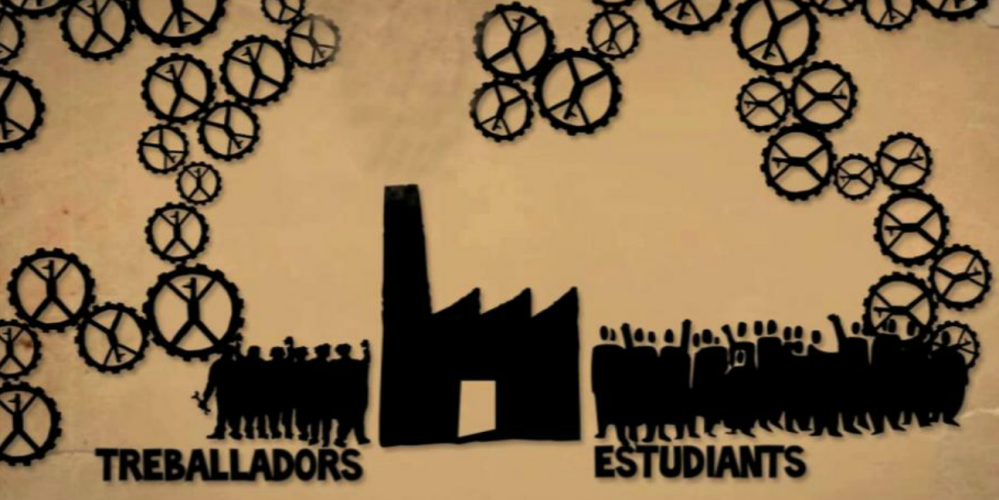This class examines the past, present and future lives of working people. It takes a panoramic view of the sociological literature on work, labor, and labor movements. As a survey course, it will introduce important themes and concepts, and raise more questions than it answers. Our readings will cover four general themes in order. The first centers on the nature of work and the labor process; the second on an analysis of social class and class formation. The third theme focuses on the labor movement and other modes of class-based organization. Finally, we go back to the future and examine technology and the future of work, building on material from the entire semester. It is designed as an introduction to the field that will inspire deeper curiosity and more rigorous analysis. The course builds on key debates raised in classical and contemporary social theory—the point of work, the nature of class, the organization of work lives, the division of labor, inequality, collective action, etc. However, there are more particular questions raised within Labor Sociology that are also of concern here: Why is the US working class so weak? Where do social classes come from? How have workers’ lives changed over the past two centuries? Are unions obsolete? (Spoiler: no.) What has the pandemic done to workers? Why work?
Class Participation
You are expected to attend every class and out-of-class event. Come fully caffeinated, prepared to discuss readings and join group discussions. You are encouraged to have an opinion, be audacious, and risk your pride. Class participation means you regularly attend class and take part in meaningful ways. Since critical dialogue is probably where most learning happens anyway, this should be in our mutual interests. Learning is a conspiracy, a group activity where we work, play, plot, and debate together. Students should be prepared to take notes without laptops. Cell phones and all other non-airplane-approved devices must be switched off.
Assignments
You will write one paper based on course texts and do one group project that includes original research into the way the pandemic has impacted the lives of workers. You’ll do an introduction to class material and complete a final that will allow you to come up with solutions to the crises facing today’s workers. I will give you more specific information on the details of each of these assignments when the time comes. More information on all assignments will be covered throughout the semester.
Class Environment
You are expected to attend every class. Come fully caffeinated, prepared to discuss readings and join group discussions. Class participation means you regularly attend class and take part in meaningful ways. Since critical dialogue is probably where most learning happens anyway, this should be in our mutual interests. Learning is a conspiracy, a group activity where we work, play, plot, and debate together. Students should be prepared to take notes without laptops. Cell phones, laptops, and all other non-airplane-approved devices must be switched off. You are strictly prohibited from recording any student, faculty, or guest without their consent in our classroom. At the end of this syllabus is an addendum that describes helpful communication tips between professors and students when you have questions outside of class.
During our discussions, set yourself goals to participate in ways that challenge your habits and usual modus operandi. You are encouraged to have an opinion, be audacious, act out, and risk your pride (what you risk shows what you value). Please bring a written question for each class period. We will use those questions as the basis for our discussions in your sections.
Grades
I will not be grading your work. I will be providing feedback and a detailed grading rubric for you to reference when you write a self-assessment, and assign yourself a grade, at the end of the semester. I will make comments on your work. Most likely that process will determine your grade. I reserve the right to revise your grade up or down if I feel your performance has fallen far afield from your self-assessment. We will go over this practice in detail.
Your grades come from the assignments stated above, plus class participation. Class participation is derived from a combination of attendance, frequency and quality of participation in class discussions, the competency of your five minute introduction, and observed struggle to engage the material. Requests for extensions beyond the submission date should be made well before the due date. Work that is two days late or fewer will receive one half a grade lower. After one week, late work isn’t accepted. The course emphasizes writing as the primary mechanism to determine grades and outcomes. My overall philosophy on grading emphasizes struggle, not mastery. In other words, as befits a course on “labor,” hard work pays off. You may choose to do an alternative project in place of the standard assignment. Talk to me well in advance to discuss your proposal. The grade breakdown is as follows:
A – Outstanding: Expectations exceeded.
B – Excellent: All expectations met with excellence.
C – Good: All expectations met with moderate success.
D – Poor: Expectations inconsistently met.
F – Failure: Work incomplete by culmination of the course.
First paper 30%
Pandemic Project 40%
Final 20%
Class participation 10%
If you object to a grade you receive in class, email me a detailed explanation as to why you think the grade should be changed. In that email, also include a few suggested times when you can meet me in person as soon as possible to discuss the matter further.
Honor Code and Academic Integrity
The Middlebury Honor Code forbids cheating and plagiarism. For details on what constitutes these breaches of conduct, please see Middlebury policy here: http://www.middlebury.edu/academics/administration/newfaculty/handbook/honorcode
Failure to abide such regulations will result in my notifying the proper college authorities. The academy is not known for its sense of humor, but plagiarism is truly no joke. For information on how to avoid plagiarizing, see Earl Babbie’s article: http://www.csub.edu/ssric-trd/howto/plagiarism.htm
